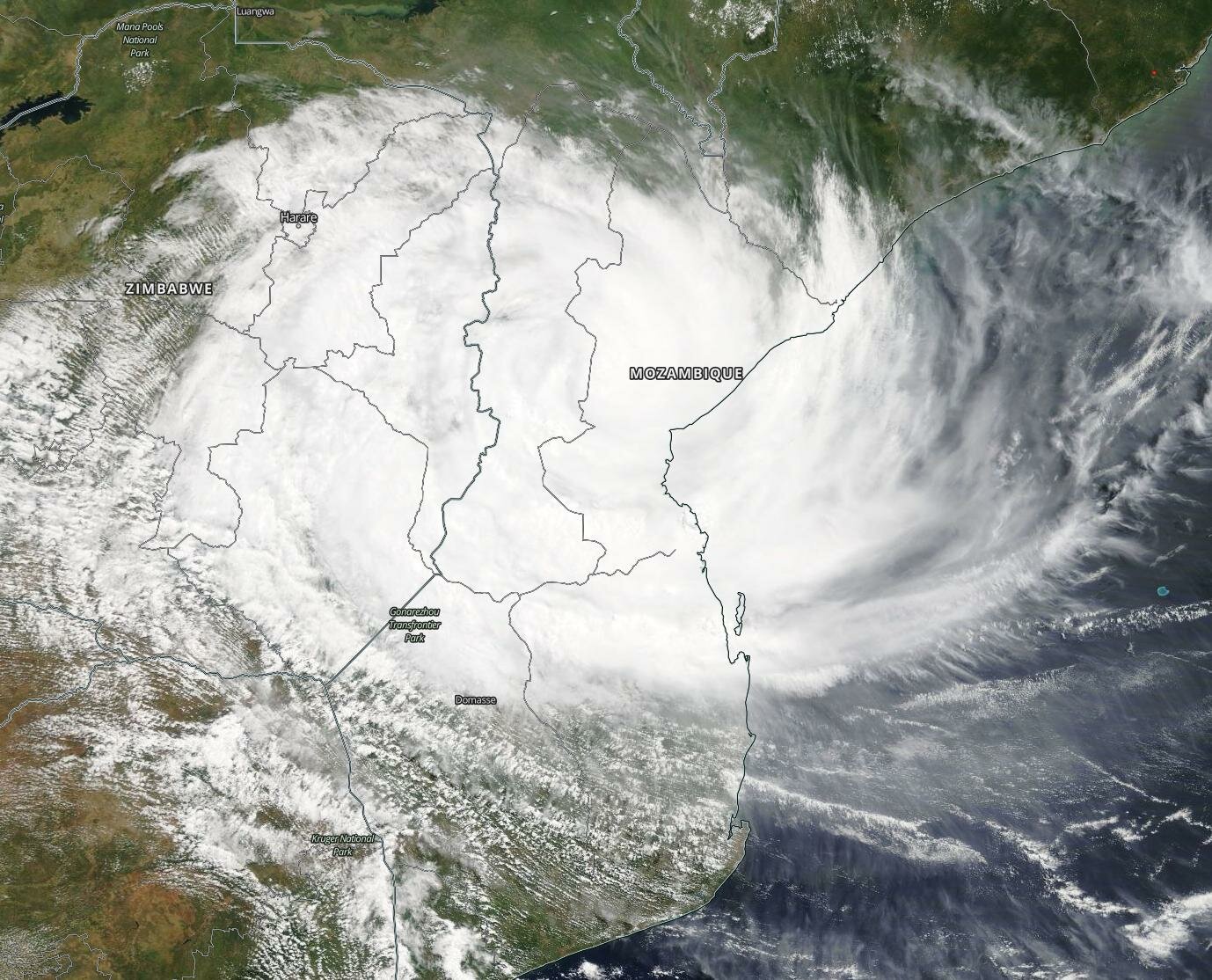By Meghna Anand, Year 11
Earlier this month, parts of southern Africa were devastated by what some are calling the worst disaster to affect the region in two decades. Cyclone Idai is a cyclone (another name for a hurricane or typhoon) of 150 kilometer per hour winds that has affected Malawi, Zimbabwe, and now Mozambique. It formed on the 4th of March, reached peak intensity on March 14th, and dissipated on the 21st. One of the worst affected areas is Beira, the fourth largest city in Mozambique. Beira was vulnerable to flooding, (because parts of it are below sea level) and it has been ravaged by it. The flooding has created what many people are starting to call “inland oceans”.
The death toll was 56 in Malawi, 259 in Zimbabwe, and 293 in Mozambique, amounting to a total death toll of over 600. In Zimbabwe, 217 people are missing and 200,000 will need food aid, and in Malawi, 27,000 people have been displaced. According to a United Nations Office for the Coordination of Humanitarian Affairs estimate on the 22nd of March, 1,500 in Mozambique have been injured, 65,000 people were living in shelters, and 17,400 homes have been destroyed. Beira, a city that is home to 400,000 people, has lost power, its airport and hospital have been damaged, and a large dam has burst, making the city inaccessible by land. Cholera is starting to spread as a result of damage done to water and sanitation systems. Food shortages are expected to occur in all three countries because the storm has damaged 385,000 hectares of crops. Food prices in Beira have already tripled. “This is a double disaster for communities in southern Malawi where, even prior to the latest flooding, 3.4 million people were food insecure,” said Yousef Jogezi (Concern Worldwide’s Country Director in Malawi). “Now, just a month before the maize harvest — what was a very rich crop — has been destroyed. Between 80% and 100% of the harvest has been lost.”
Organizations such as Doctors Without Borders, Concern Worldwide, UNICEF, the UN Office for the Coordination of Humanitarian Affairs, the World Food Programme, and the Red Cross are all working to improve the situation in the area, but aid workers all seem to be in agreement that more help is needed. António Guterres, the secretary general of the UN, has said that even though the UN has allocated $20 million to cyclone relief, “far greater international support is needed”. The WFP has said that it “needs urgent financial support from governments and individuals to reach hundreds of thousands with immediate life-saving assistance”. It needs over $121 million to help 1.7 million people in Mozambique during the next three months.
You can help, too! Donate to a charity of your choice that is working in the region affected by the cyclone here.



